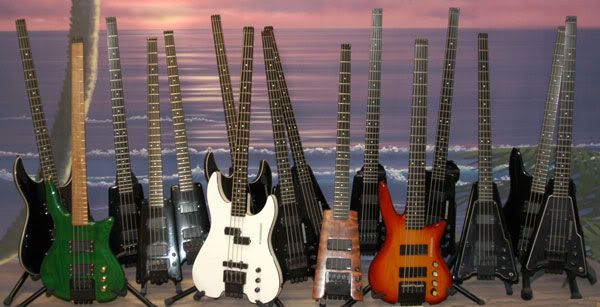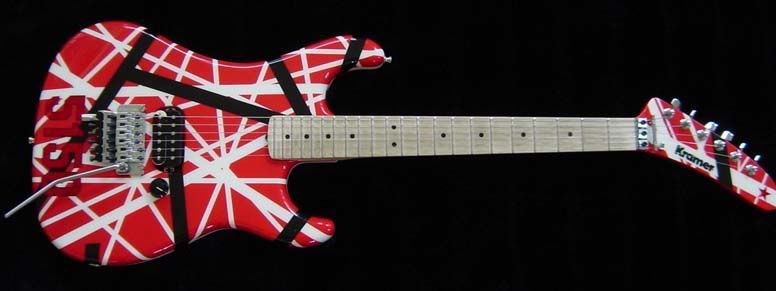Okay, if you’re in the position to be bought, you really don’t have much say in the matter. But if you make or play popular, quality guitars, hope it’s not Gibson that buys them out.
 |
| Epiphone guitars generally offer budget versions of Gibson Guitars popular models. Sometimes they have features the Gibson models don't such as the Floyd Rose trem seen here. |
Epiphone Guitars have an American history that dates back to the early 1900s and even earlier than that in Europe, although the Epiphone brand name didn’t surface until 1923 when the owner started using it on -- shock, horror -- banjos.
 |
| The Epiphone Riviera was one of John Lennon's choice guitars. |
Ever since Gibson purchased them, Epiphone has done nothing but carry bargain-priced versions of Gibson’s popular models. Or, sometimes, they’ll be more experimental than the Gibson versions. While some of these instruments rival Gibsons in sound quality and playability, Epiphone’s brand name has suffered from this “poorer cousin” image for decades.
One notable exception to this is the Epiphone Riviera that John Lennon often played. This hollow-body electric is in the same range of quality as Gibson’s ES-335s.
More recently, Gibson bought out popular guitar brands and innovators Kramer and Steinberger. Both of these brands were known for high-quality instruments with great amounts of technical advances. Gibson offers these models in high-quality versions at great expense – greater than what the brands charged when they held their own purse strings.
The real problem is that Gibson has also created budget-priced versions of these instruments. What this does is put these cheap models into the hands of more guitarists and creates an unfair perception of Kramer and Steinberger’s quality. Over time, it kills respect for the brand name. While these brands continue to sell plenty of models, it’s usually because of their budget price. When a guitarist can afford a decent model, they’ll avoid these brands because of their perception. Which is what Gibson is banking on, I believe.
By comparison, look at Fender. They own both Jackson and Gretsch guitars. But, without being told that, you’d never know. The quality of instrument and brand independence has been well maintained.
The next time you’re out looking at guitars, think a little about that. Not that it should affect your purchasing, buy what you want. But if you’re looking for a quality instrument, don’t disregard these brands because there are still some good ones out there.






No comments:
Post a Comment